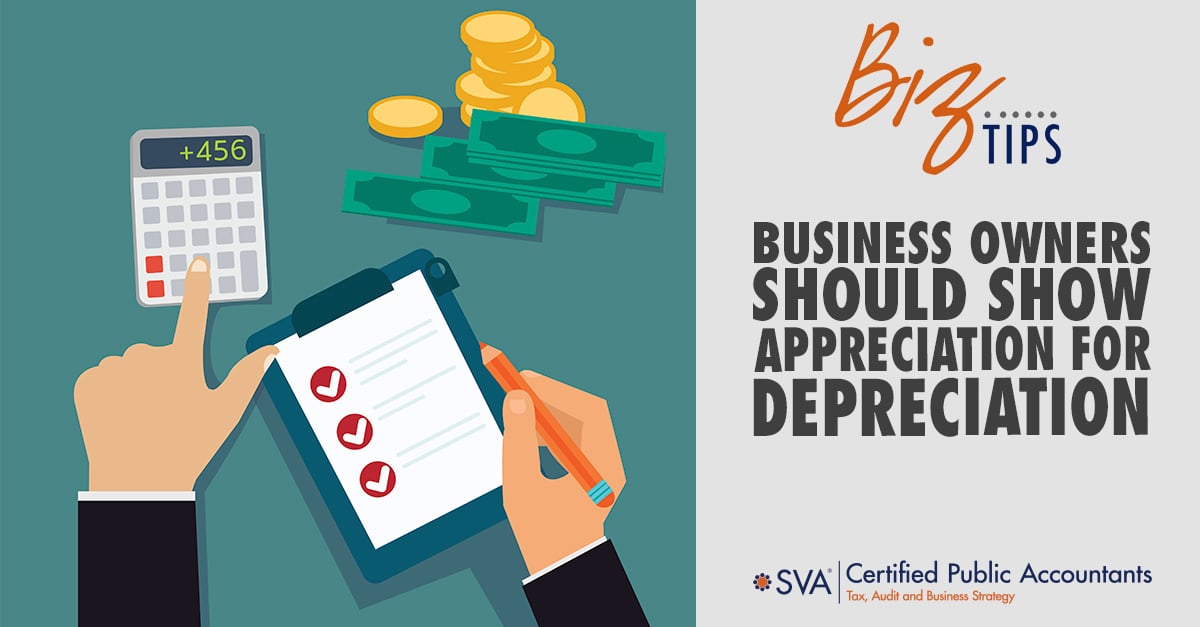As we look ahead to tax planning strategies, it's a good time to think about whether your business needs to buy business equipment and other depreciable property. If so, you may benefit from the Section 179 depreciation tax deduction for business property. The election provides a tax windfall to businesses, enabling them to claim immediate deductions for qualified assets, instead of taking depreciation deductions over time.
Even better, the Sec. 179 deduction isn't the only avenue for immediate tax write-offs for qualified assets. Under the 100% bonus depreciation tax break, the entire cost of eligible assets placed in service for a given year, can be written off in that year. But to benefit for this tax year, you need to buy and place qualifying assets in service by December 31.
What Qualifies?
With the passing of the One Big, Beautiful Bill (OBBB) in July 2025, there are changes to the Section 179 deduction. Read the following Biz Tip to learn the latest updates on the Section 179 deduction:
Section 179 Gets a Boost With New Expensing Limits |
The Sec. 179 deduction applies to tangible personal property such as machinery and equipment purchased for use in a trade or business, and, if the taxpayer elects, qualified real property. It's generally available on a tax year basis and is subject to a dollar limit.
The annual deduction limit is $1.04 million for tax years beginning in 2020, subject to a phaseout rule. Under the rule, the deduction is phased out (reduced) if more than a specified amount of qualifying property is placed in service during the tax year. The amount is $2.59 million for tax years beginning in 2020. (Note: Different rules apply to heavy SUVs.)
There's also a taxable income limit. If your taxable business income is less than the dollar limit for that year, the amount for which you can make the election is limited to that taxable income. However, any amount you can't immediately deduct is carried forward and can be deducted in later years (to the extent permitted by the applicable dollar limit, the phaseout rule, and the taxable income limit).
In addition to significantly increasing the Sec. 179 deduction, the TCJA also expanded the definition of qualifying assets to include depreciable tangible personal property used mainly in the furnishing of lodging, such as furniture and appliances.
The TCJA also expanded the definition of qualified real property to include qualified improvement property and some improvements to nonresidential real property, such as roofs; heating, ventilation and air-conditioning equipment; fire protection and alarm systems; and security systems.
What About Bonus Depreciation?
With bonus depreciation, businesses are allowed to deduct 100% of the cost of certain assets in the first year, rather than capitalize them on their balance sheets and gradually depreciate them. (Before the Tax Cuts and Jobs Act, you could deduct only 50% of the cost of qualified new property.)
This tax break applies to qualifying assets placed in service between September 28, 2017, and December 31, 2022 (by December 32, 2023, for certain assets with longer production periods and for aircraft). After that, the bonus depreciation percentage is reduced by 20% per year, until it's fully phased out after 2026 (or after 2027 for certain assets described above).
Bonus depreciation is allowed for both new and used qualifying assets, which include most categories of tangible depreciable assets other than real estate.
Important: Please be aware of the state tax implications of using the accelerated depreciation methods above. Not all states (including Wisconsin) allow bonus depreciation. Also, the Section 179 limits for some states are lower than the Federal amounts listed above (note - Wisconsin does follow the Federal Section 179 limits). When deciding which depreciation methods to use, factor in the tax benefit that would be received at the state level along with the Federal tax deductions
Need Assistance?
These favorable depreciation deductions may deliver tax-saving benefits to your business. Contact us if you have any questions, or you want more information about how your business can maximize the deductions.
© 2020

